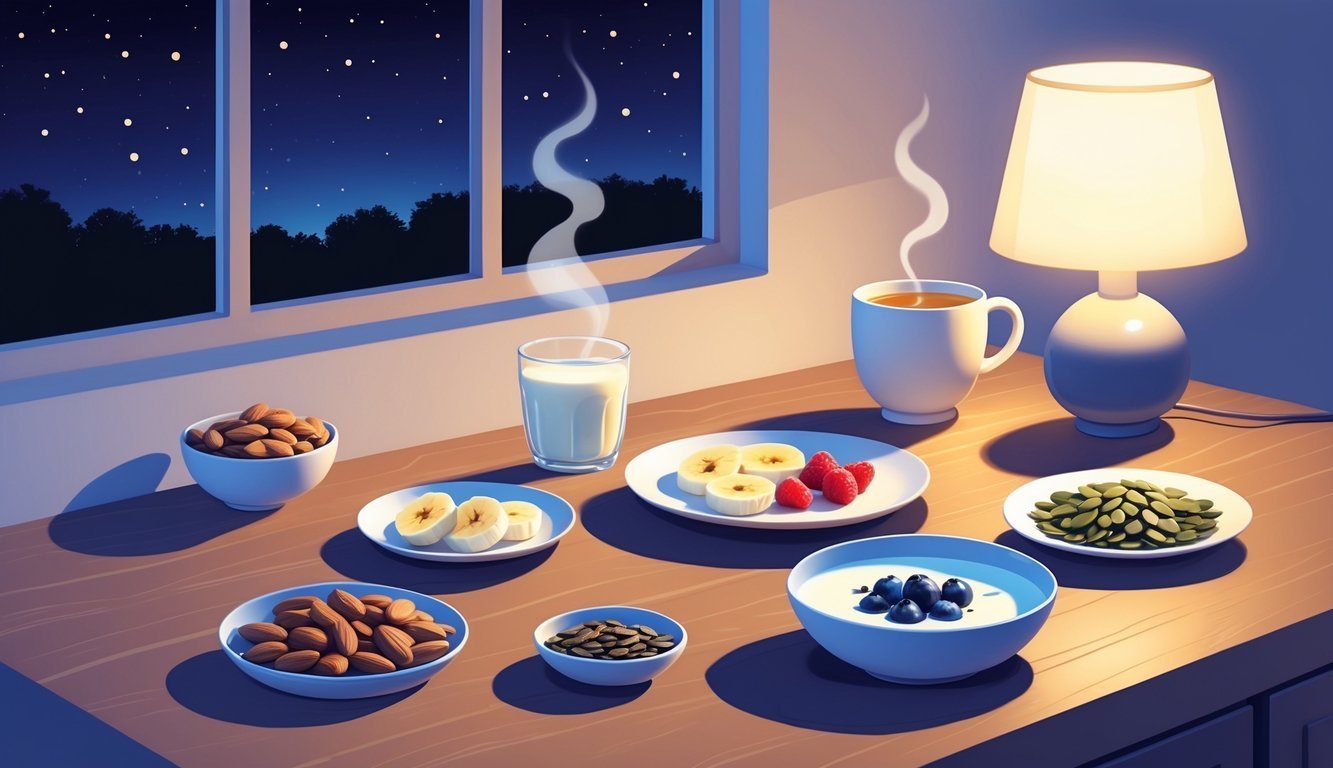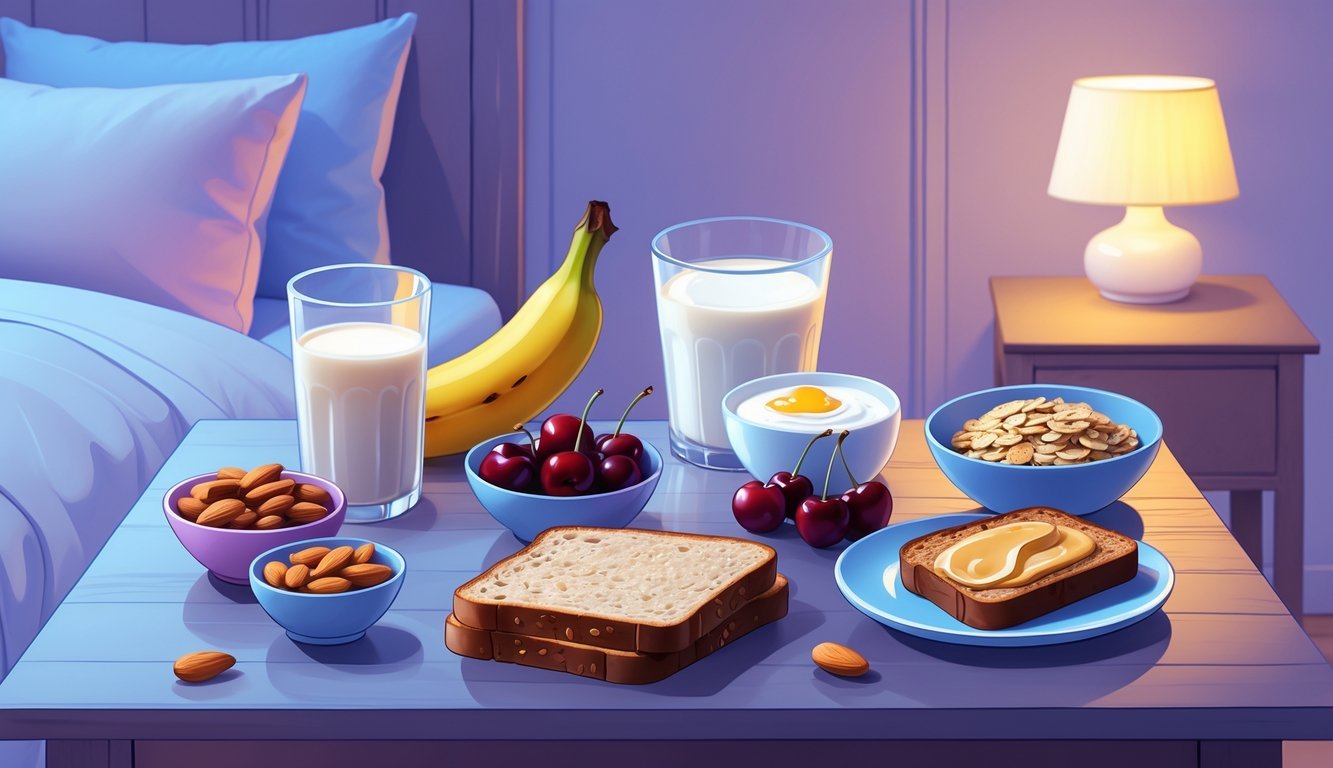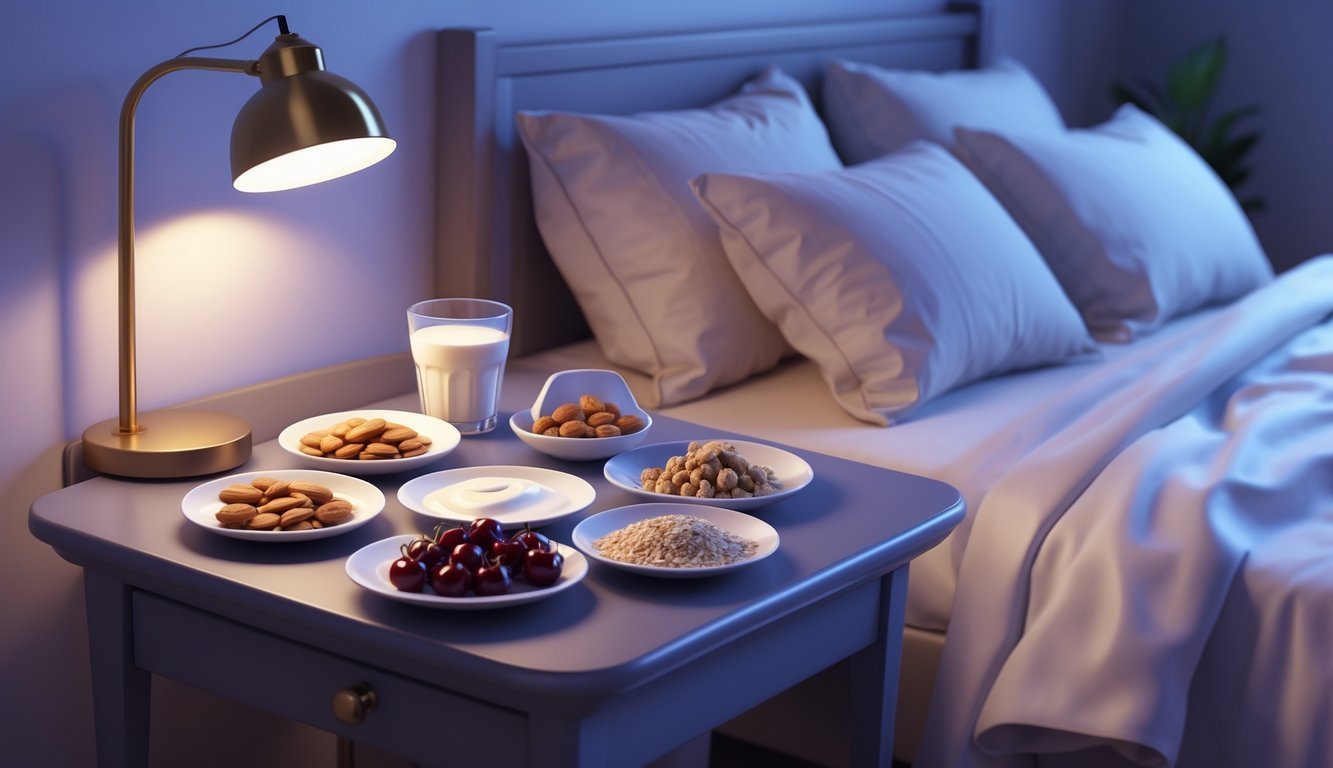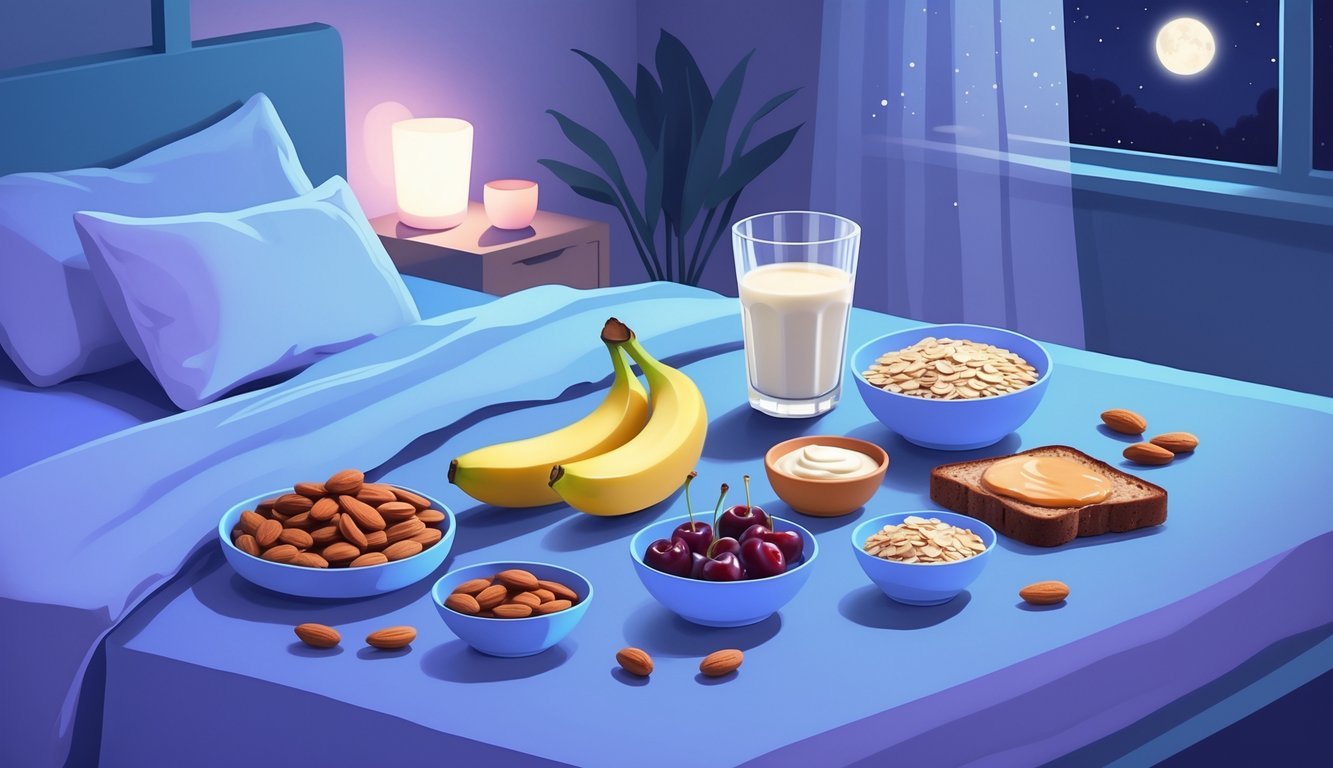PsychNewsDaily Publishers
100 Summit Drive
Burlington, MA, 01803
Telephone: (320) 349-2484
PsychNewsDaily Publishers
100 Summit Drive
Burlington, MA, 01803
Telephone: (320) 349-2484
Good sleep quality is enhanced by choosing healthy bedtime snacks, like almonds and bananas, which promote relaxation and support recovery through protein and carbohydrate combinations.

Getting good sleep really makes a difference in how you feel and how your body recovers after a long day. What you eat before bed? That can shape how fast you drift off and how well you recharge overnight.
If you choose the right snacks—think almonds, bananas, or Greek yogurt—you can actually boost your sleep quality and help your body rest better.
Snacking before bed isn’t about eating a ton; it’s about picking foods that mix protein and healthy carbs so you stay satisfied without messing with your sleep. The right snacks help your body wind down and get ready for some real rest.
If you make a few small changes, like adding a couple specific snacks to your evenings, you might notice a real difference. This guide covers seven easy, healthy options that encourage better sleep and help you recover, so you can wake up feeling a little more refreshed.

If you pick the right snack before bed, you’ll probably fall asleep faster and bounce back better overnight. Foods that combine protein and carbs can boost melatonin and help your natural sleep cycle.
When you pay attention to timing and portion size, you can improve your sleep quality and even keep stress or anxiety in check.
When you eat before bed, your body uses those nutrients to relax and repair itself. Foods that boost melatonin, the hormone that keeps your circadian rhythm on track, help you wake up feeling rested.
Snacks with protein and carbs can bump up your serotonin, which calms anxiety and smooths out your sleep cycle.
You probably want to skip heavy or sugary snacks that might mess up your bedtime routine or give you a burst of energy. Instead, try foods like beans, spinach, or nuts—they gently fuel recovery.
These foods also help keep your blood sugar stable, which can lower stress as you sleep.
Here are some of the best snacks to reach for before bed:
Each snack supports your body’s rhythm and can help you sleep a little better.
Try eating your bedtime snack about 30 to 60 minutes before you plan to sleep. That gives your body time to digest and helps you avoid any discomfort that could wake you up.
Keep your portions small—somewhere between 100 and 200 calories. Too much food can cause indigestion and mess with your sleep.
Avoid heavy or sugary snacks that might spike your energy or add stress. Stick to a steady bedtime routine that includes your snack, and you’ll help your circadian rhythm stay on track.

Your habits and environment really do shape your sleep. Even small tweaks to your bedroom or how you use your devices can help you fall asleep faster and sleep more soundly.
Keep your bedroom cool—somewhere between 60 and 67°F (15 to 19°C) works for most people. A cooler room helps your body relax and drift off.
Make your bedroom dark and quiet. Blackout curtains or a sleep mask can block out light, and if noise bugs you, earplugs or a white noise machine might help.
Use bedding and pillows that actually feel good to you. Clearing away clutter can lower anxiety and make it easier to relax.
Screens give off blue light that stops your brain from making melatonin. That’s the hormone you need to fall asleep.
Try to put down your phone, tablet, or computer at least an hour before bed. Maybe read a book, listen to calm music, or do a little stretching instead.
If you absolutely have to use your devices, turn on a blue light filter or night mode. That way, your sleep cycle has a better shot at kicking in.

Picking the right bedtime snacks can help with weight control, sleep quality, and recovery. Knowing what to eat—and what to skip—makes it easier to get the rest you need and wake up feeling better.
Go for snacks that are low in calories but high in protein and fiber. Nuts, seeds, or a small bowl of Greek yogurt can fill you up without too many calories.
Skip sugary or high-fat snacks, since they can add extra calories and mess with your sleep, which makes weight loss tougher.
Tart cherries, almonds, and bananas all have nutrients that might help you fall asleep faster. Try pairing carbs like fruit with protein like nuts for a balanced snack.
These foods have melatonin or magnesium, both of which naturally support sleep.
Try to avoid caffeine, spicy foods, and big meals late at night. They often cause discomfort or keep you awake.
Sugary snacks can also spike your energy and make relaxing harder.
Foods with tryptophan, like eggs or nuts, plus carbs like crackers or fruit, can help you fall asleep sooner.
Melatonin-rich foods, such as tart cherries, are also solid picks.
Roasted chickpeas, edamame, or a small bowl of whole-grain cereal with milk are all great choices.
They give you protein and carbs to help your muscles repair and keep your blood sugar steady through the night.
Try eating foods rich in magnesium and calcium. Almonds or yogurt are good options—they can help calm your nerves.
You might want to pair these with a small serving of complex carbs. That combo could boost your serotonin levels and maybe even make falling asleep a bit easier.